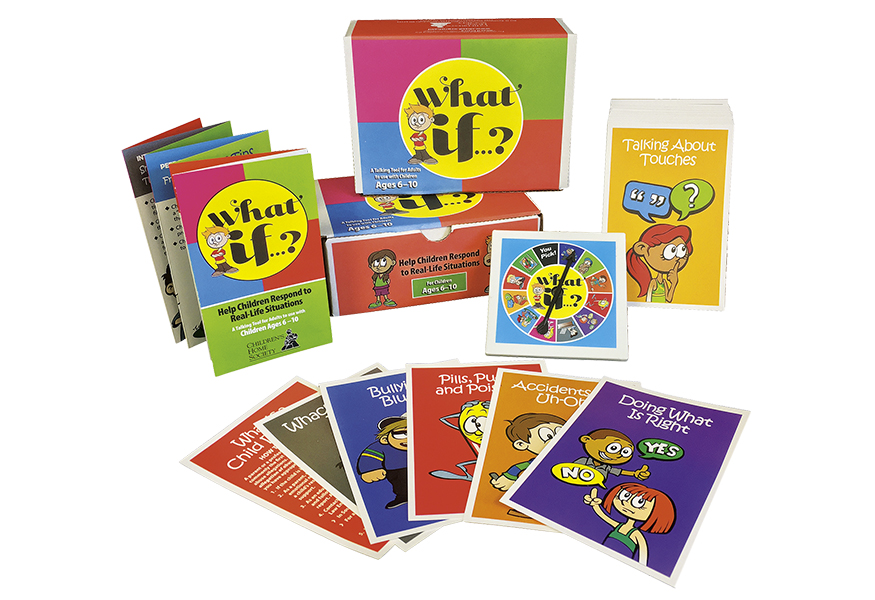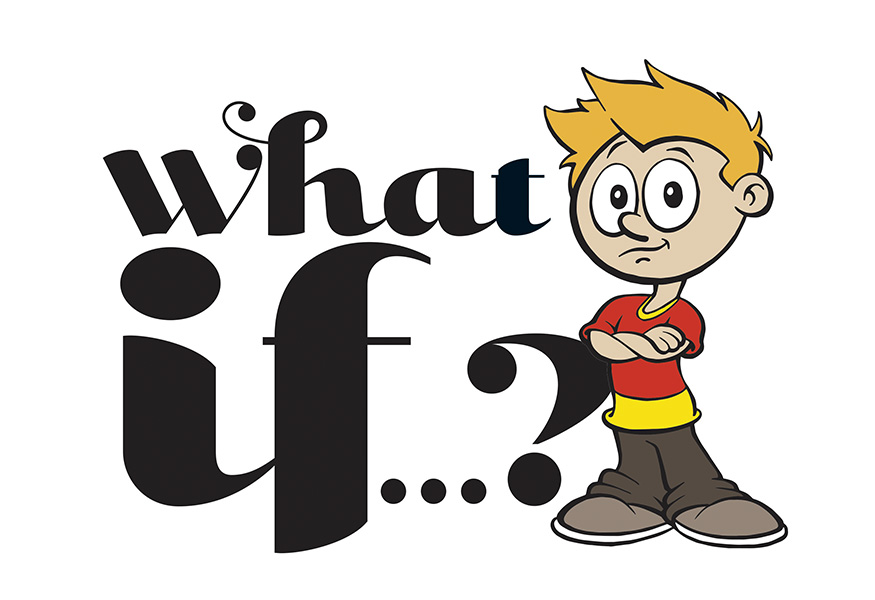As a parent, I thought I had it figured out. Here I was, working in social work for more than eight years and raising two children of my own. I help keep kids safe every day by talking to them—so surely my own kids would know what to do in a tough situation.
Then, I started working at Children’s Home Society (CHS). In this role, I educate other professionals and parents how to talk to kids about safety. This includes use of “What If…?” card sets, an interactive teaching tool for adults to evaluate children’s understanding of real-life situations and help them learn how to respond.
Four versions of “What If…?” cards were developed by CHS, comprised of age-appropriate questions on topics such as bullying, sexual abuse, home safety, peer pressure, and more. The objective of these questions is to increase the probability that children who find themselves
in an at-risk situation will communicate with trusted adults.
I took the CHS “What If…?” cards home to “test” my own children, certain they would know all the answers. The first question was about guns. My oldest son exclaimed that he would know what to do if a friend showed him a gun, because his friend has one. Wait—hadn’t we talked about gun safety?
The next question involved home safety. My daughter stated she wouldn’t know what to do if the stove smelled funny—except to call me. That answer was a little better.
Then, I asked them a question about “private parts…” (Insert eye rolls here.) In that moment, I realized I hadn’t even given my kids the names for their private parts.


I went back to work, determined to understand what it was that I—and probably a lot of other parents—might be missing. I learned that my kids had the ability to come up with a safety plan, but I wasn’t giving them the opportunity. Families spend so much time on homework, soccer practice, and brushing teeth that we often miss the big stuff.
“What If…?” cards are an invaluable tool to begin important conversations with our kids.
Asking questions in the “What If…?” style is helpful because there is no judgment or pressure. Since there are no right or wrong answers, we were able to figure out what is “right” for our family. This allowed me to approach sensitive topics with my kids, such as physical abuse or what to do if a friend confides in them. I can keep my children safe at home, but what if I can empower them outside the home—and more, to inspire them to help other children, too?
These discussions are tough, but they were harder for me as a parent than they were for my children. Kids want to show us what they know. All we need to do is start the conversation!
By Tifanie Petro—a Forensic Interviewer and Education Public Awareness Specialist
at Children’s Home Society.
Card sets can be purchased at CHS (1330 Jolly Lane, Rapid City) or ordered online.

